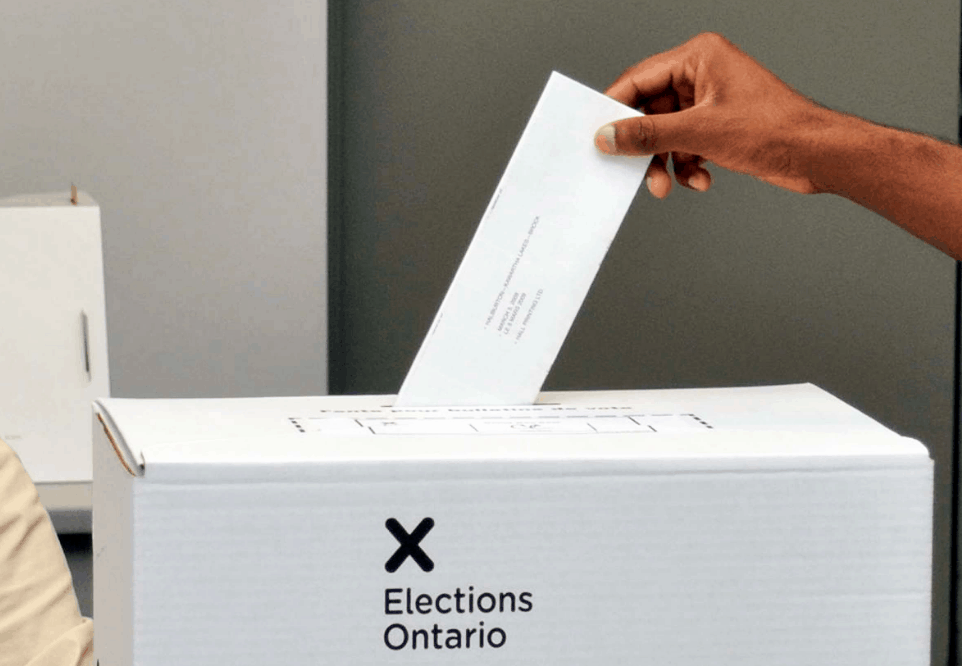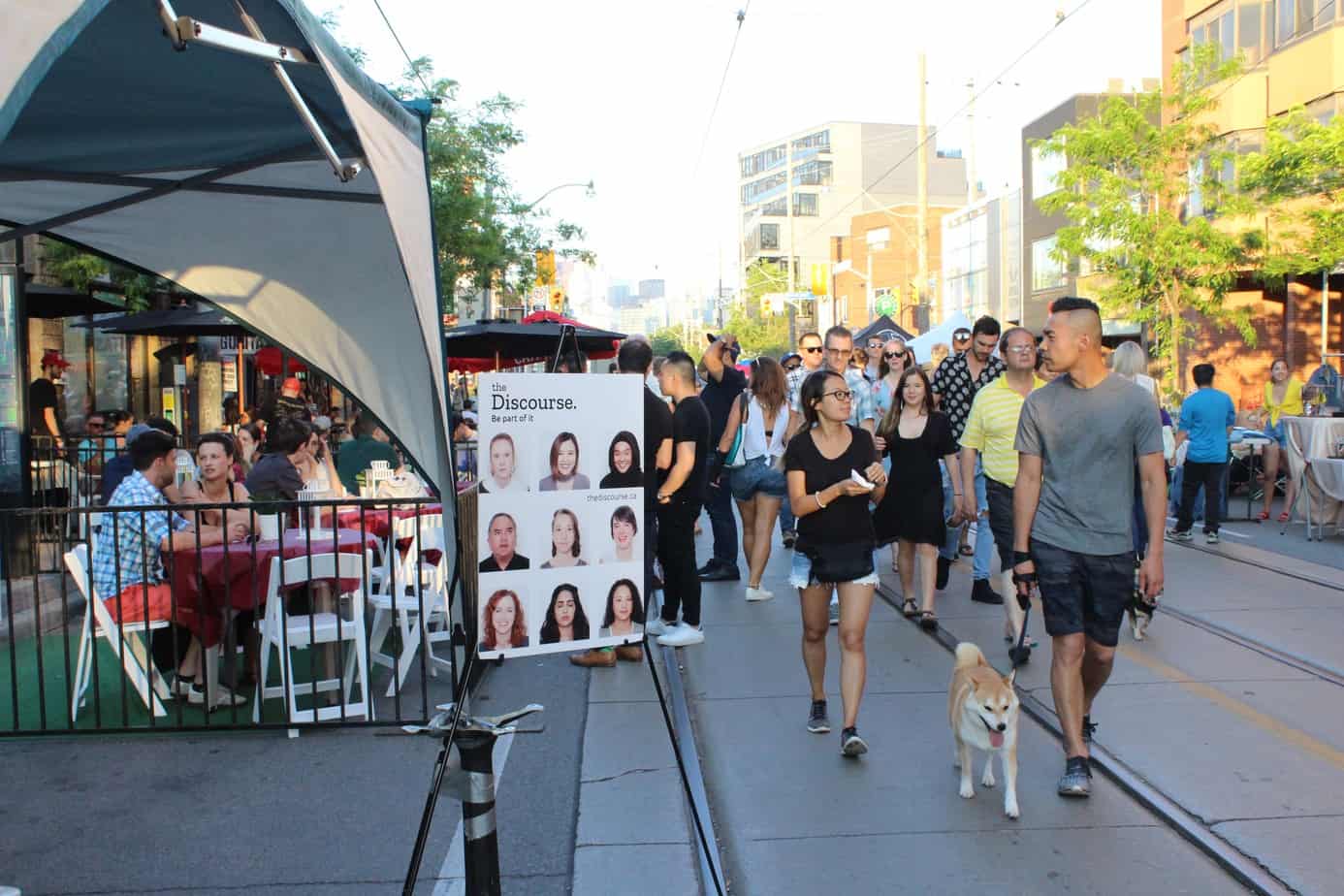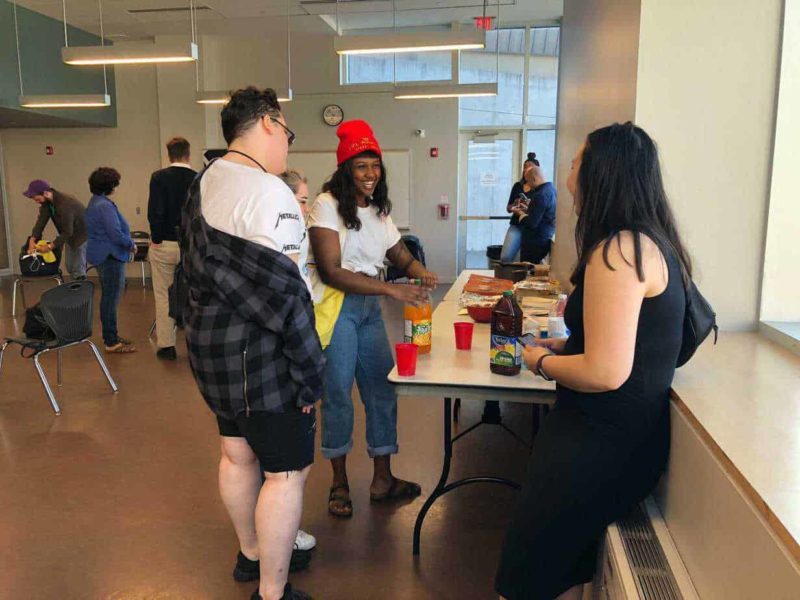
Happy election day, Ontario! As you’re voting for a new government today, Sadiya and I want to hear from you.
That’s because this week we launched #GTADiscourse, a month-long reporting project aimed at uncovering untold stories and perspectives in four communities in the Greater Toronto Area that aren’t well served by media. We started in Little Portugal, talking to city councillors, artists, elders, store owners and activists. Our goal? Find out what issues locals pay attention to when deciding how to vote and how they get information about what’s happening in their neighbourhood and city.
Those two questions are more intertwined than you might expect. The Pew Research Center has shown that civic engagement is connected to local news habits. Good local coverage is also a tool to hold power to account. In the United States, research shows that municipal governments have become less efficient following the loss of local newspapers.
The last few weeks of the election have been sensational: from Liberal Premier Kathleen Wynne’s concession to the news that PC leader Doug Ford is being sued by his brother’s widow.
While we’re waiting to hear the outcome of this dramatic race, what we do know is that communities outside Toronto’s core have a major role to play in making the call. Our analysis showed the 905 — or the cluster of suburban communities surrounding the city — experiences major local news blind spots, as a result of media cuts and closures. And at the same time, the 905 has the power to sway the election and vote in either an NDP or Conservative majority.

We’re paying close attention to that. So next week, we’re heading to Brampton. It’s home to almost 600,000 people — a diverse population that grew by 13.31 per cent between 2011 and 2016 — and both NDP and Conservative seats, so the priorities of locals will play a big role in the election outcome.
After Brampton, we’ll be talking to locals in Scarborough and Willowdale. And no matter what party gets elected, we want to get beyond superficial coverage and find out what information community members need to have meaningful discussions about the issues that matter the most to them.
If you’re at the polls today, we want to know: What issues are most important to you when deciding how to vote? Let us know by using the hashtag #GTADiscourse on Facebook and Twitter.[end]



